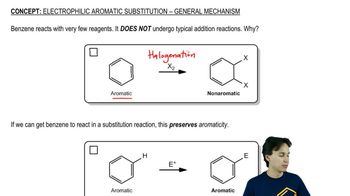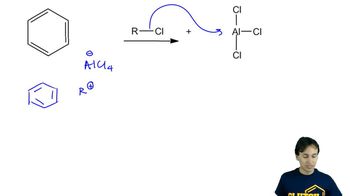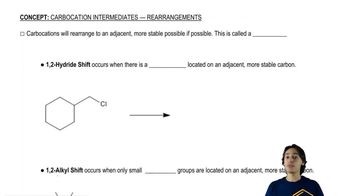What product is obtained from the reaction of excess benzene with each of the following reagents?
c. dichloromethane + AlCl3
 Verified step by step guidance
Verified step by step guidance Verified video answer for a similar problem:
Verified video answer for a similar problem:



 6:30m
6:30mMaster Friedel-Crafts Alkylation with a bite sized video explanation from Johnny
Start learning